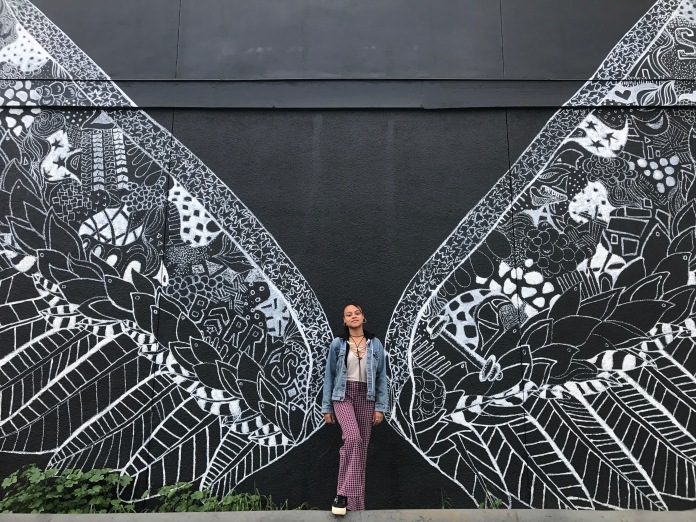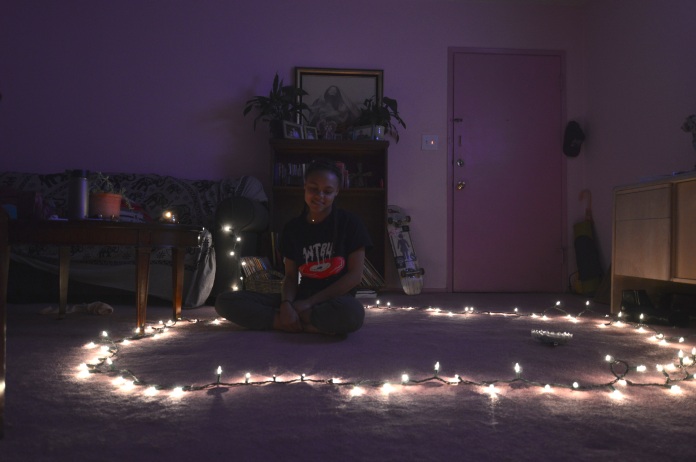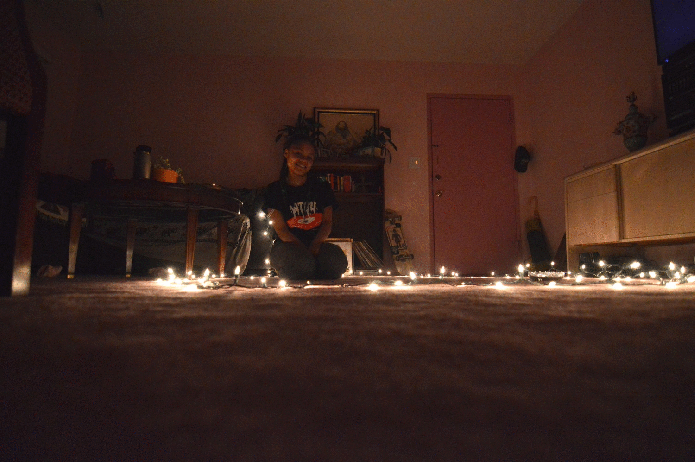
It’s 2017, and the Obama Years are over. The luxury many Americans felt in the previous administration vanished, and has now been replaced with crippling anxiety and despair. The gravity that once held this country together, has collapsed into a blackhole called Amerikkka.
Nationalism is spreading globally, sweeping a number of important national elections to the far right. Donald J. Trump is the President of the United States. The systemic powers that have ceaselessly worked against minorities and against progression, have traded their hoods for red Make America Great Again hats.
[Kodak Black portrays the current racial tensions surrounding the political climate.]
All the while in this very odd year, the woke culture gains momentum. People from all walks of life and all ages are getting involved in political matters, galvanized by the troubling times. Young public school students are speaking up about the Secretary of Education nominee, and citizens are engaging in online exchanges about what they believe the national budget should look like.
I turned 22-years-old at the beginning of these divided times. On my birthday, I mused on what it means to be young gifted and Black in 2017, and found three goals of utmost importance in this definition: understanding the intersectionality of all minority struggles, spreading Black Girl Magic, and fighting for the liberation of Black people.

One way I know how to achieve these goals is by re-learning the history of my people, as told by Black historians and scholars. History books paint slavery as The Big Bang of Black people, and celebrate only a few heroes that fought for our cause. In reality, there were many names and organizations that paved the path for Black Liberation, such as the National League of Colored Women and other Black women’s club movement of the late 19th century.
In Angela Davis’ Women Race & Class, she gives depth to accomplished pioneers, such as Mary Church Terrell and Ida B. Wells, who faced the hurdle of Antebellum America to establish political capital for Black women. She also gives breath to the many female Communist agitators, such as Lucy Parsons and Ella Reeve “Mother” Bloor, who fought against racist and patriarchal ideals for an equal standing in society.
Another way I know to reach these goals, is by preserving the culture and uplifting stories/names that have been left in the dark. I recently attended a discussion held by the California African American Museum titled #BLACKGIRLSMATTER that focused on the 1991 murder of Latasha Harlins. I was moved to tears when Latasha’s aunt spoke of the family’s struggle for justice. The panelists, who included professors, organizers, and two members of Black Lives Matter, inquired on a number of the details that influence the fate of black girls in America. Lack of representation in the media, the devaluing of Black labor, and misunderstanding the fullness of humanity in any all contribute to black girls experiencing the double-edged sword of a racist patriarchal society.
I’m doing more and more to get involved in fighting the resistance against our conservative government. Much like the Tea Party, The Indivisible Project has directed me with ways to communicate with my local representatives and other local organizations that can bring about real influential change. Last year I placed a heavy amount of importance on making money and building my career, this year however, the risks are too high to be selfish and not take a stand against the injustices introduced by this Administration.

2016 felt rotten from the inside out. This year, I hope our new collective outlook on our government persuades a real underlying change in the way we shape ourselves. I know that the odds are against me. I know how lucky I am to see another revolution around the sun.

